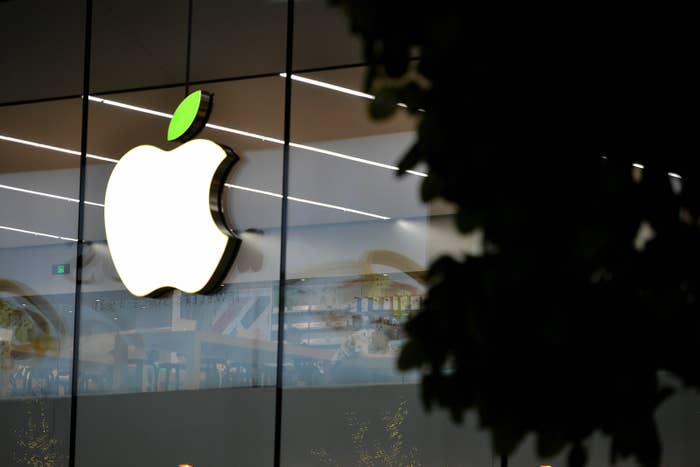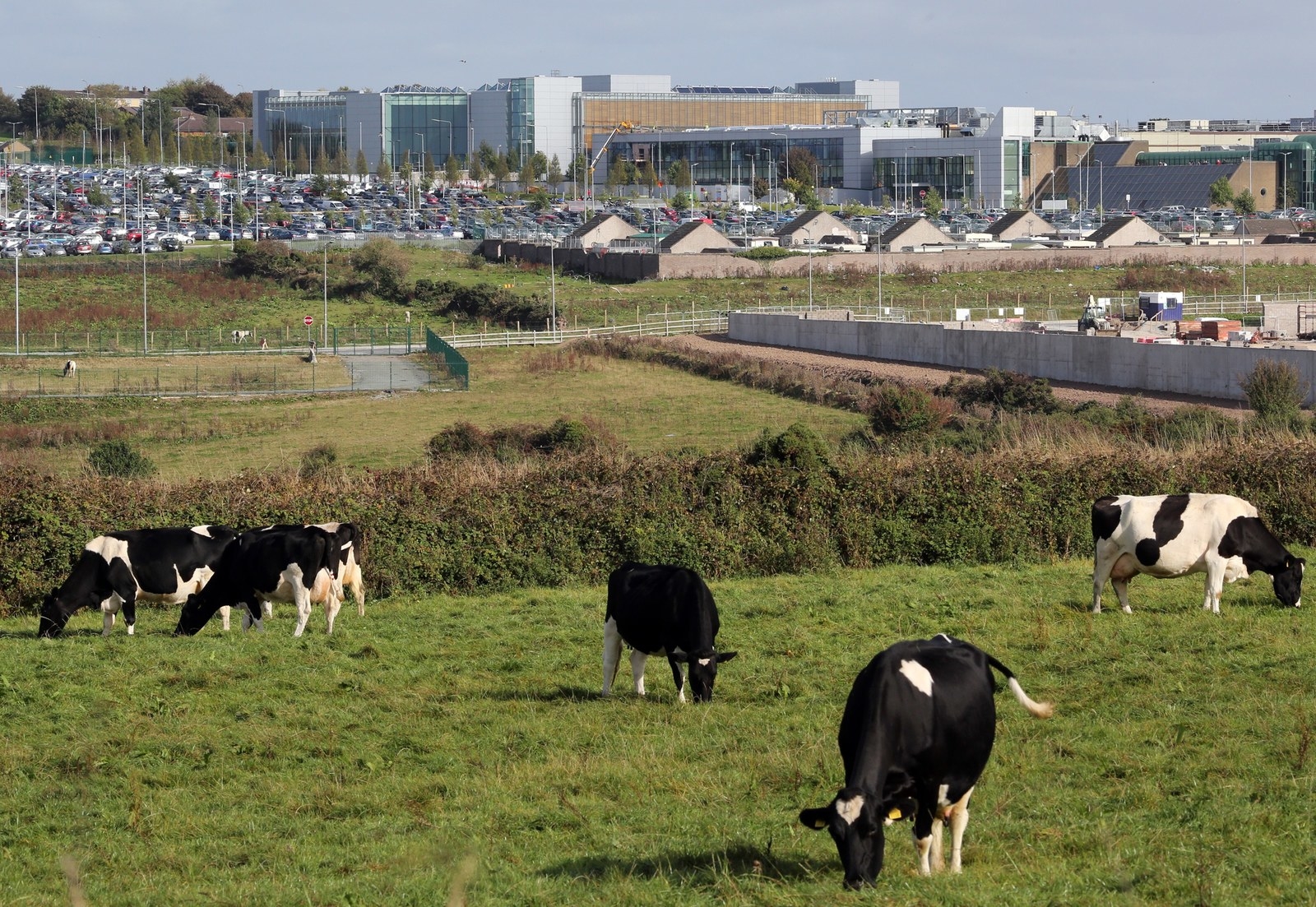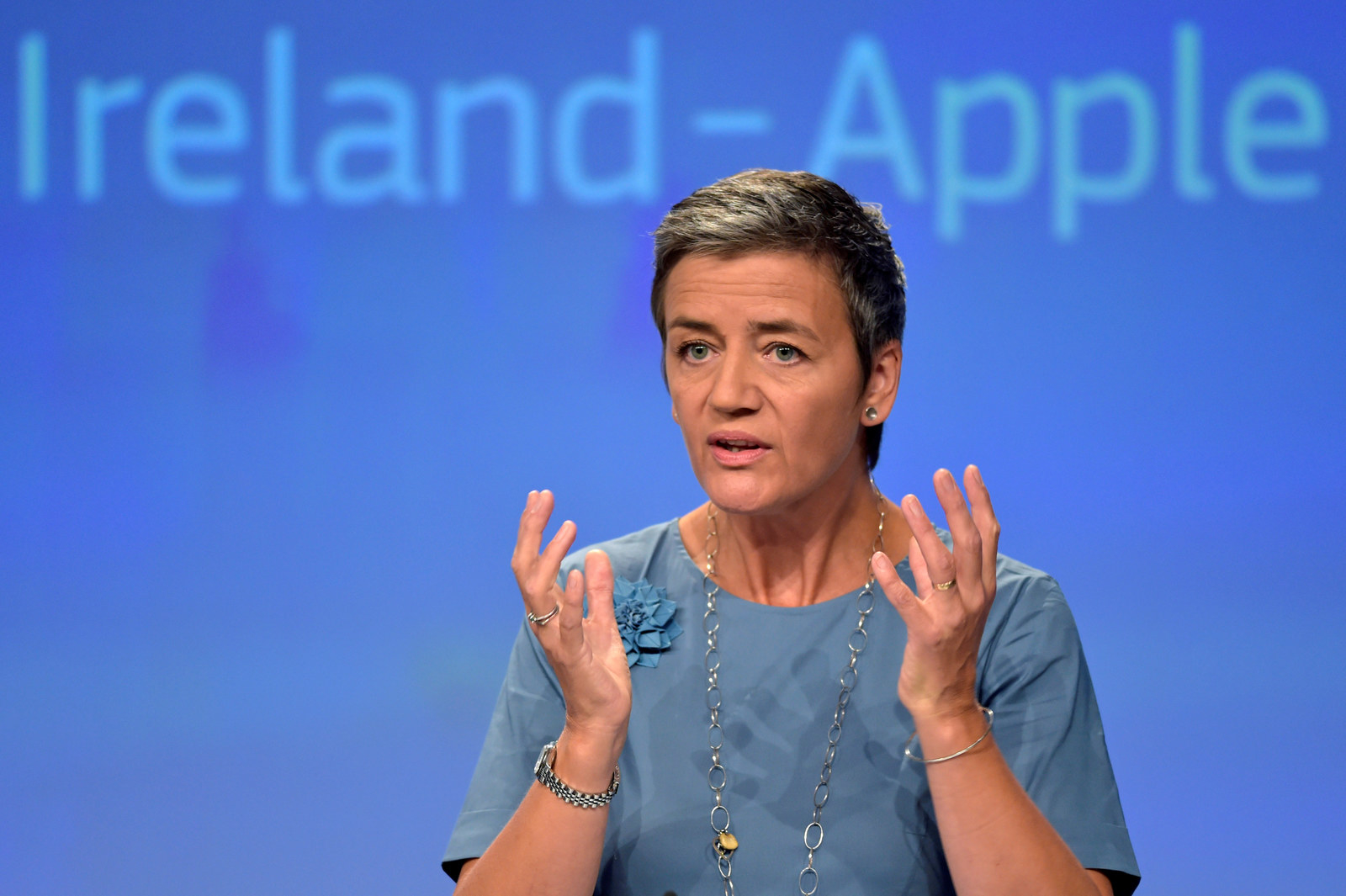
The European Commission on Tuesday ruled that Ireland gave Apple illegal tax benefits of €13 billion ($14.5 billion) between the years of 2003 to 2014, and that the company should repay the money to the country's government.
The ruling — which came off the back of an in-depth investigation by the commission, beginning in June 2014 — stated that the undue tax benefits amounted to Apple being given "selective treatment" by the Irish government, as other large companies were not offered the same deal.
This means Apple gets "state aid" as a result.
Speaking at a press conference in Brussels on Tuesday morning, Margrethe Vestager, the commissioner in charge of competition policy, said: "This is not a penalty. It is unpaid taxes to be paid."
In a statement issued on the European Commission's website, Vestager added:
"Member States cannot give tax benefits to selected companies – this is illegal under EU state aid rules. The Commission's investigation concluded that Ireland granted illegal tax benefits to Apple, which enabled it to pay substantially less tax than other businesses over many years. In fact, this selective treatment allowed Apple to pay an effective corporate tax rate of 1 per cent on its European profits in 2003 down to 0.005 per cent in 2014."
The commission revealed that in 2014 Apple's Ireland operation paid just €50 in tax for every €1 million in profit the company made — giving it an effective 0.005% tax rate. The commission is also investigating similar deals with McDonald's and Amazon.
Shortly after Tuesday's ruling, both Apple and the Irish government announced they would appeal.
Apple said the decision would have a "profound and harmful effect on investment and job creation in Europe," but that they were "confident the decision will be overturned."
In a letter to the company's European customers released later on Tuesday, Apple CEO Tim Cook criticized the decision and bemoaned the "obvious targeting" of Apple. He also emphasized the company's history in the southern Irish city of Cork, where it first opened a factory in 1980.
Caught up with our world-class team in Cork today. Thanks, Ireland, for a great visit!
"At the time, Cork was suffering from high unemployment and extremely low economic investment. But Apple’s leaders saw a community rich with talent, and one they believed could accommodate growth if the company was fortunate enough to succeed," Cook said.
Referring to the commission's decision, Cook said: "The Commission’s move is unprecedented and it has serious, wide-reaching implications. It is effectively proposing to replace Irish tax laws with a view of what the Commission thinks the law should have been."
He added: "We are committed to Ireland and we plan to continue investing there, growing and serving our customers with the same level of passion and commitment. We firmly believe that the facts and the established legal principles upon which the EU was founded will ultimately prevail."
During a call with reporters on Tuesday morning, Apple CFO Luca Maestri said: "This decision by the Commission seriously threatens the sovereignty of individual EU states and the rule of law."
Maestri also accused the European Commission of making up the figure used for the effective tax rate: "The Commission refers to an effective tax rate that has been used by Commissioner Vestager, which is a completely made up number — there is no other way to describe it."
In the same call, Apple General Counsel Bruce Sewell said that the company will be an active participant in the appeal following Ireland's lead and the company is developing its legal briefs, expects the appeal to be a multi-year process.

Ireland's Finance Minister Michael Noonan said in a statement, "Ireland’s position remains that the full amount of tax was paid in this case and no state aid was provided. Ireland did not give favorable tax treatment to Apple. Ireland does not do deals with taxpayers."
He added that the government "will now seek cabinet approval to appeal the commission decision to the European Courts."
In its statement on the investigation into Apple and Ireland's tax arrangements, the European Commission said that two Irish tax rulings issued to Apple had "substantially and artificially lowered the tax paid by Apple in Ireland since 1991."
These rulings allowed Apple to essentially set up shell companies in Ireland — Apple Sales International and Apple Operations Europe — which did “not correspond to [the] economic reality” of how much money the computer giant was actually making in Europe, the commission said.
Nearly all of the two companies’ recorded profits were internally attributed to a “head office,” which the commission found existed only on paper and “could not have generated such profits.”
Parts of Irish tax law at the time — which are no longer in force — meant that profits allocated to these nonexistent “head offices” were not subject to tax in any country.
This meant Apple was able to pay such a low level of corporation tax.

Speaking at a news conference in Brussels on Tuesday morning, Vestager said: "Our investigation focused on the allocation of profits recorded in Ireland within Apple Sales International. We looked into two tax rulings issued by Ireland for Apple.
"The first in 1991, it was replaced in 2007, by a similar second ruling. Both rulings endorsed an internal split of Apple's international sales profits for tax purposes. They allocated the profits between the Irish branch and the company’s head office, — or I should say so-called 'head office' — because this so-called 'head office' only existed on paper.
"It has no employees, it has no premises, and it has no real activities. The Irish branch was subject to normal Irish corporation tax, however, the 'head office' was subject to no tax in Ireland or elsewhere."
The sum to be repaid amounts to the entirety of Ireland's annual health budget , or 27% of Apple's total profits from last year, according to BBC News.
Simon Neville, Rose Buchanan, and Hamza Shaban contributed reporting to this article.
